Thank you so much for reading Grief, Grit & Grace. If you enjoy what you’re reading and want to support my work, please become a paid subscriber.
In the traditional Chinese calendar, the interval from mid-August to late September is known as Late Summer, the fifth season of the year.
Late Summer marks a midpoint in the annual cycle where the yang energy of summer reaches a climax of pause before descending into the yin of fall and winter.
In that spirit of pause I wanted to touch in, say hi, let you know that I haven’t forgotten about you, and give you a glimpse into why I was radio silent all summer long.
My theme this summer was “do the thing,” as the young’uns say these days.
As best I can tell, do the thing means stretching ourselves beyond the inner voices that reflexively say, “Oh I could never do that.”
My big thing this summer centered around the labyrinth—the spiral-like circular maze one traverses when making a symbolic pilgrimage to the center of one’s soul.

Labyrinth designs pre-date the Abrahamic religions and can be found on rock formations, metal objects, clay tablets, and elsewhere throughout Egypt, Crete, Peru, Native America, and Eastern Europe.
Early Christians adopted the labyrinth as a symbolic pilgrimage to Jerusalem for those who couldn’t travel there.
I was always struck by how labyrinth patterns resemble the human brain—and then learned that the back-and-forth walk of a labyrinth facilitates right-and-left brain integration, which in turn promotes trauma resolution and intuitive insight.
Both of which I experienced in spades this summer.
Last year, my student Georgia announced to my online community, The Women, Food & Forgiveness Academy, that she had become engaged.
She envisioned a dusk wedding on the Summer Solstice of 2023.
I secretly hoped she would ask me to officiate.
She secretly hoped I would say yes.
One year later, Georgia and her beau Morgan loaded up their Subaru and traversed the highway labyrinth from Virginia to Colorado to arrive here at my home in the Sangre de Cristo Mountains for their private ceremony.
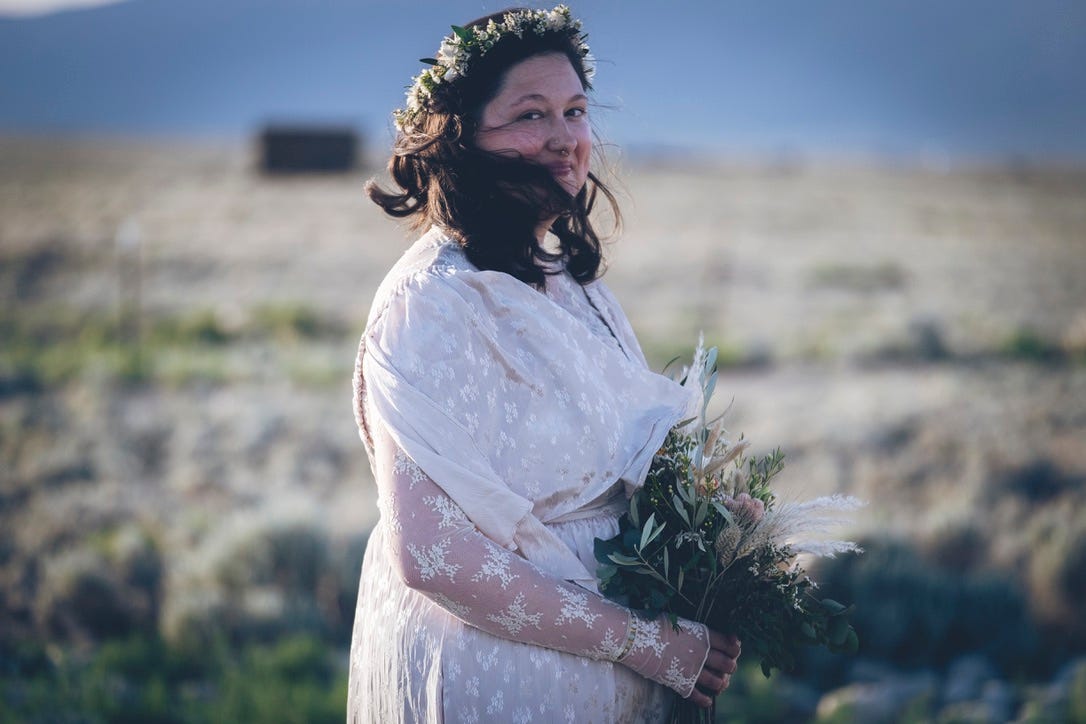
The prospect of curating this once-in-a-lifetime experience for my precious client initially gave me deep pause.
How could I, a 61-year-old never-married woman with a picaresque sexual history preside over the sacred union of these two beautiful young souls?
“What do I really know about unconditional love,” I mused, “never having given myself over to a life partner?”
I took this tender question into prayer, and thus my entry into the labyrinth had begun.
In the Heroine’s Journey, when one is confronted with a question of such magnitude, one seeks the guidance of a Mentor.
And so I reached out to a woman I call “she-who-hears-the-world-weeping”—our resident therapist who herself has facilitated several weddings in recent years.
With her characteristic wisdom and kindness, this Quan-Yin of our small town invited me to her home and, over tea and oatmeal cookies, guided me through the rudiments of co-crafting a DIY wedding ceremony with the bride and groom to be.
She reminded me of something I have known well through my nearly 40 years on the Buddhist path, and that is the power of the vow.
“When we take vows,” Quan-Yin reminded me, “or even when we are facilitating the vows of another, it catapults everyone into a trajectory of karmic acceleration. By their nature, vows shine a light into the parts of our being that have to catch up and align with that intention.”
After meeting with this Wise Woman, I revisited my initial question:
Beyond any shame or regret I might still feel about my relational past, I wondered, what do I know about unconditional love?
Filtering that question through my own intention-setting inquiry, the answer came immediately:
“I know that I love Georgia, and I’m sure I’ll grow to love the young man to whom she has betrothed herself, so how about if I focus my love on offering the highest service I can in this situation?”
I set the intention, in co-creation with the Divine, that I would play full-out curating the most meaningful experience I could for Georgia and Morgan, and that the joy I would feel contributing to their happiness would in turn salve my lovelorn woes.
I decided also to feel satisfied, satiated, and awestruck during and after the wedding.
From here, plans for the wedding unfolded as if we were on a magic carpet ride.
Hitches and glitches arose and dissolved in the days preceding the ceremony. We struck the perfect balance of relaxation and celebration, gravitas and glee, as we traipsed our merry way into the center of the labyrinth—the ceremony itself.
We stood, in Black Elk’s words, “at the center of the sacred hoop,” with the mountains, the wind, and the setting solstice sun as our witnesses.
Even after months of preparation, I had some ideas but no real plan for what was going to come out of my mouth. (After decades of teaching I know that this is the best way to let the Spirit of the Moment take the lead.)
Quite spontaneously I recited one of my favorite quotes about love, from Martin Luther King, Jr. in his landmark speech, Beyond Vietnam:
“When I speak of love, I am not speaking of some sentimental and weak response. I am speaking of that force which all of the great religions have seen as the supreme unifying principle of life. Love is somehow the key that unlocks the door that leads to ultimate reality.”
Then came the taking of the vows.
And this is where words fail me.
I will never be able to convey the utter majesty that poured from the mouths and hearts of this man and this woman entering into union.
Their words hit me like a full-force gale.
The poetry. The passion. The preternatural emotional maturity of these two old souls in young bodies.
In the center of the sacred hoop, I witnessed the Great Love that compels two people to push all their chips to the center of the table and say—mutually—I choose you.
It’s that love—that eros—that heals the world.
What do I know now about unconditional love?
The great hugging guru Amma likes to say, “Take one step toward God, and God takes 100 steps toward you.”
She explains, “If you make an effort to cultivate just one good quality, all the other good qualities will develop naturally within you.”
Emerging from the labyrinth in the days following the wedding, and even recollecting that extraordinary experience by writing these words, every cell in my midlife body feels infused with love as if I were a spring Maiden drinking from a cup that never runs dry.
I know now that unconditional love is who I am.
It’s the center that’s always available when we drop into a Late Summer pause at any time of year.
And my once-lovelorn heart now says Thank You for the adventures of my past.
For, as Shakespeare wrote, What’s past is prologue.
Had I not lurched through the labyrinthine confusion of my earlier years, I might not be standing at this point where I too could consider pushing all my chips into the center of the table and saying yes to a Great Love that could bring great healing to this world.
Thanks so much for reading to the end!
Please feel free to post a comment and let me know what resonated for you in my story. I’d love to hear from you.




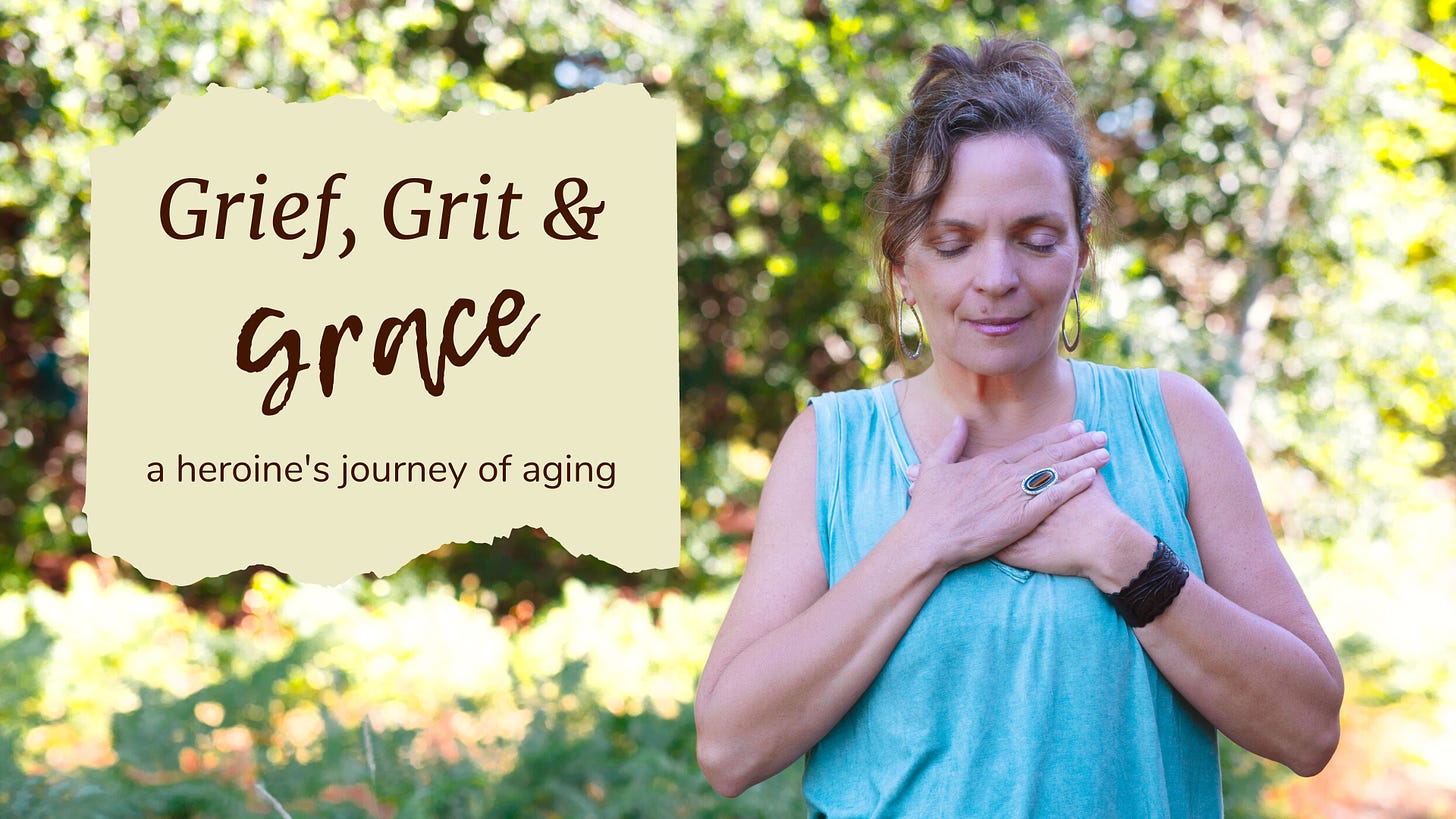
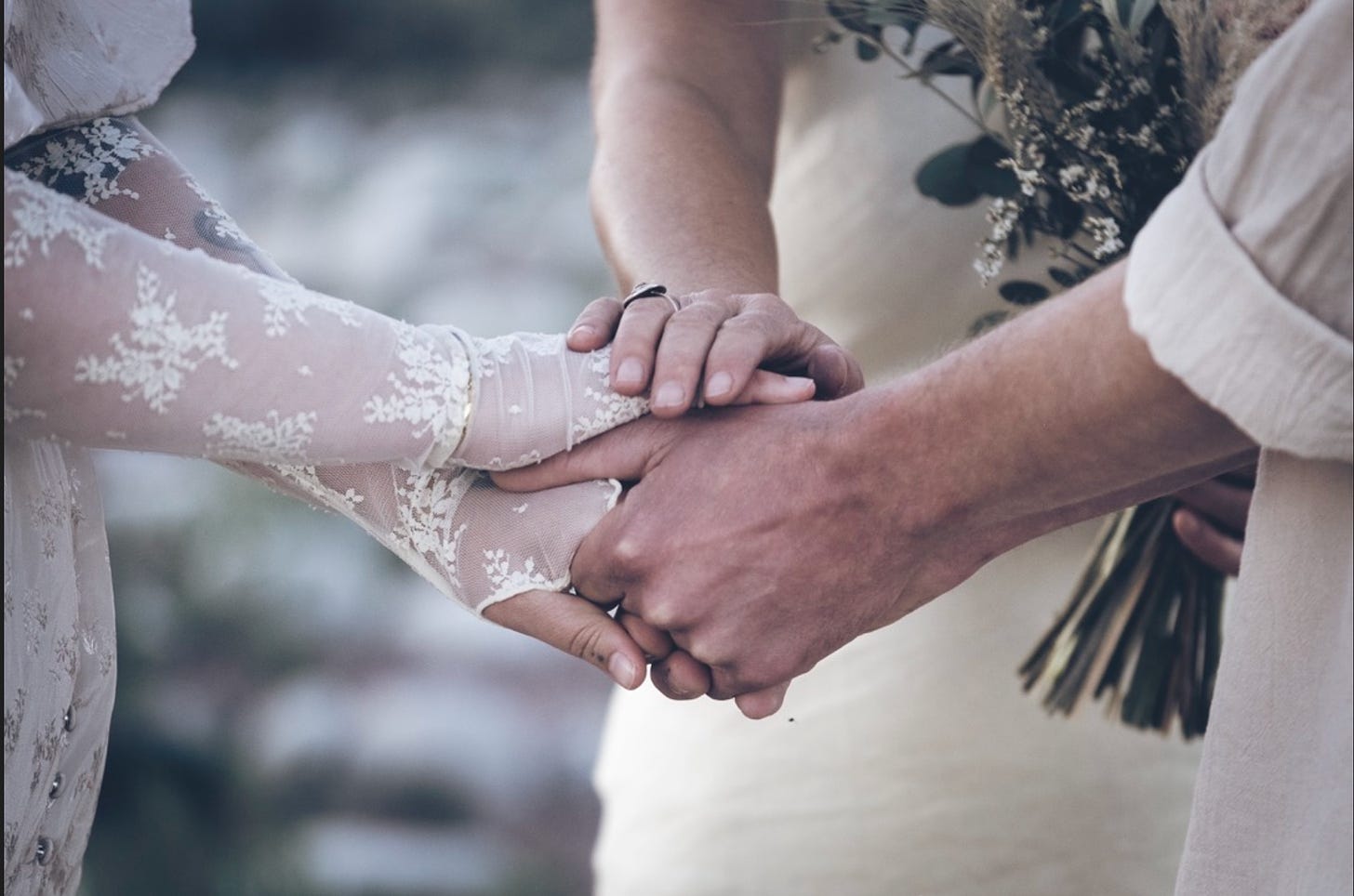
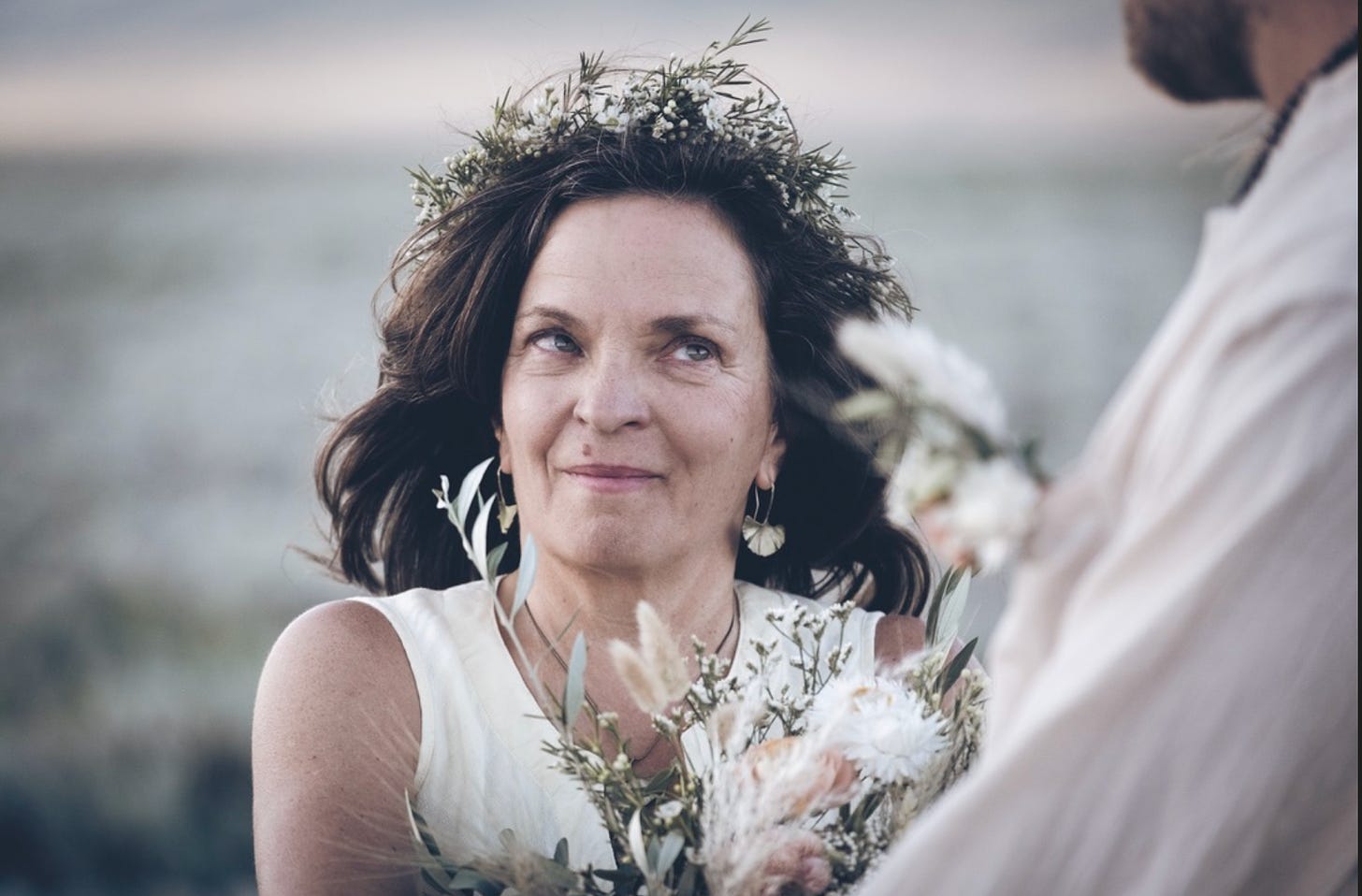
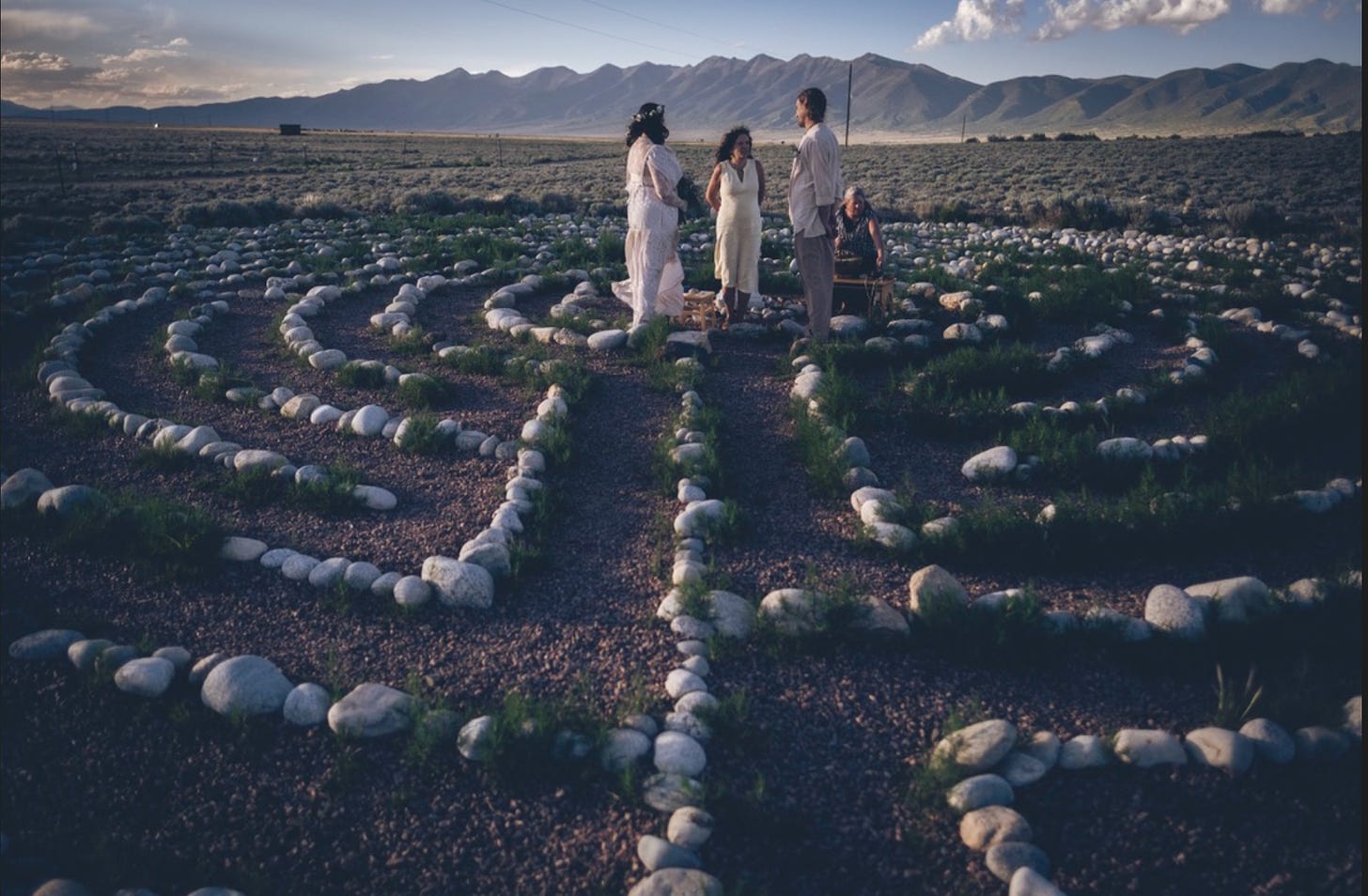
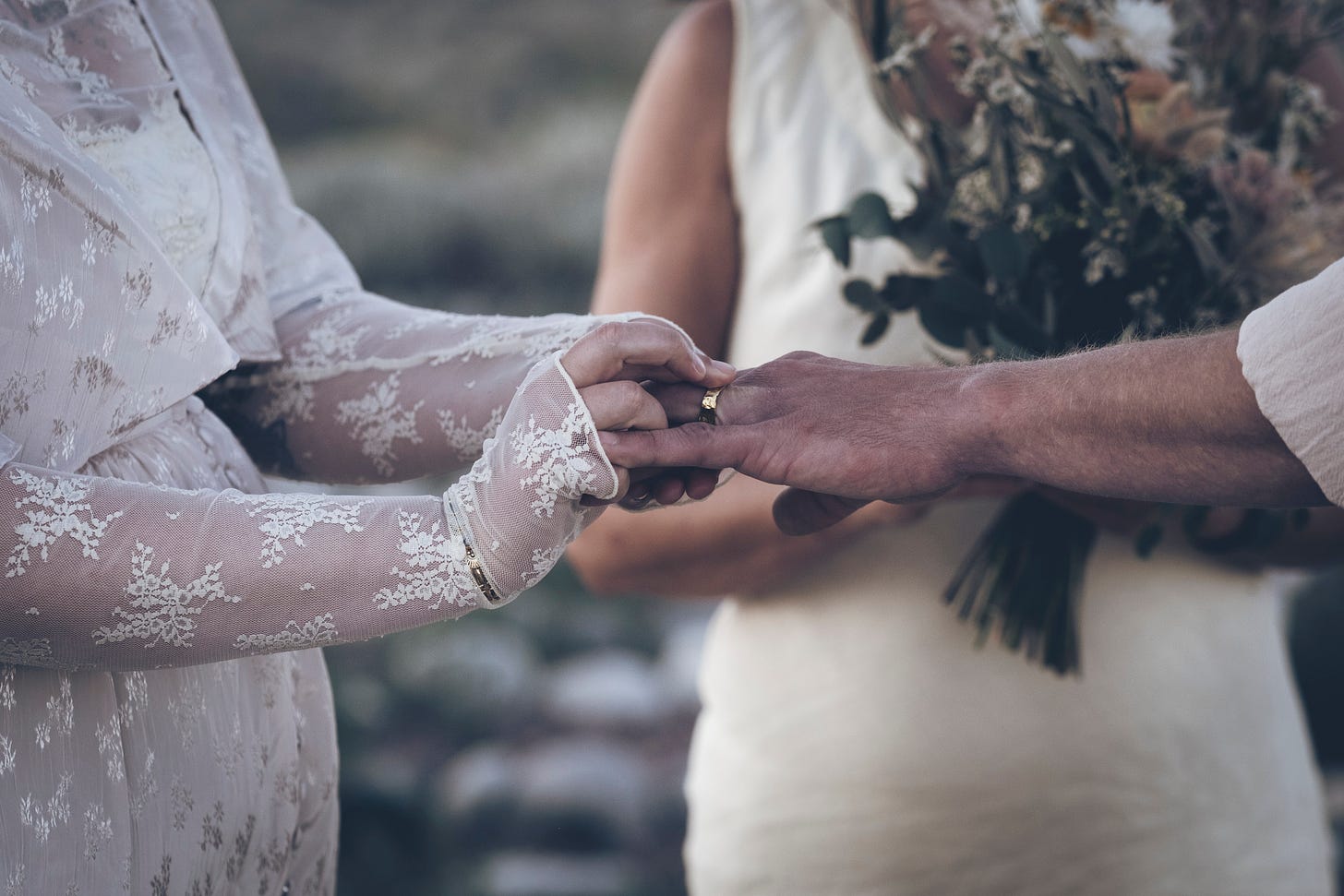
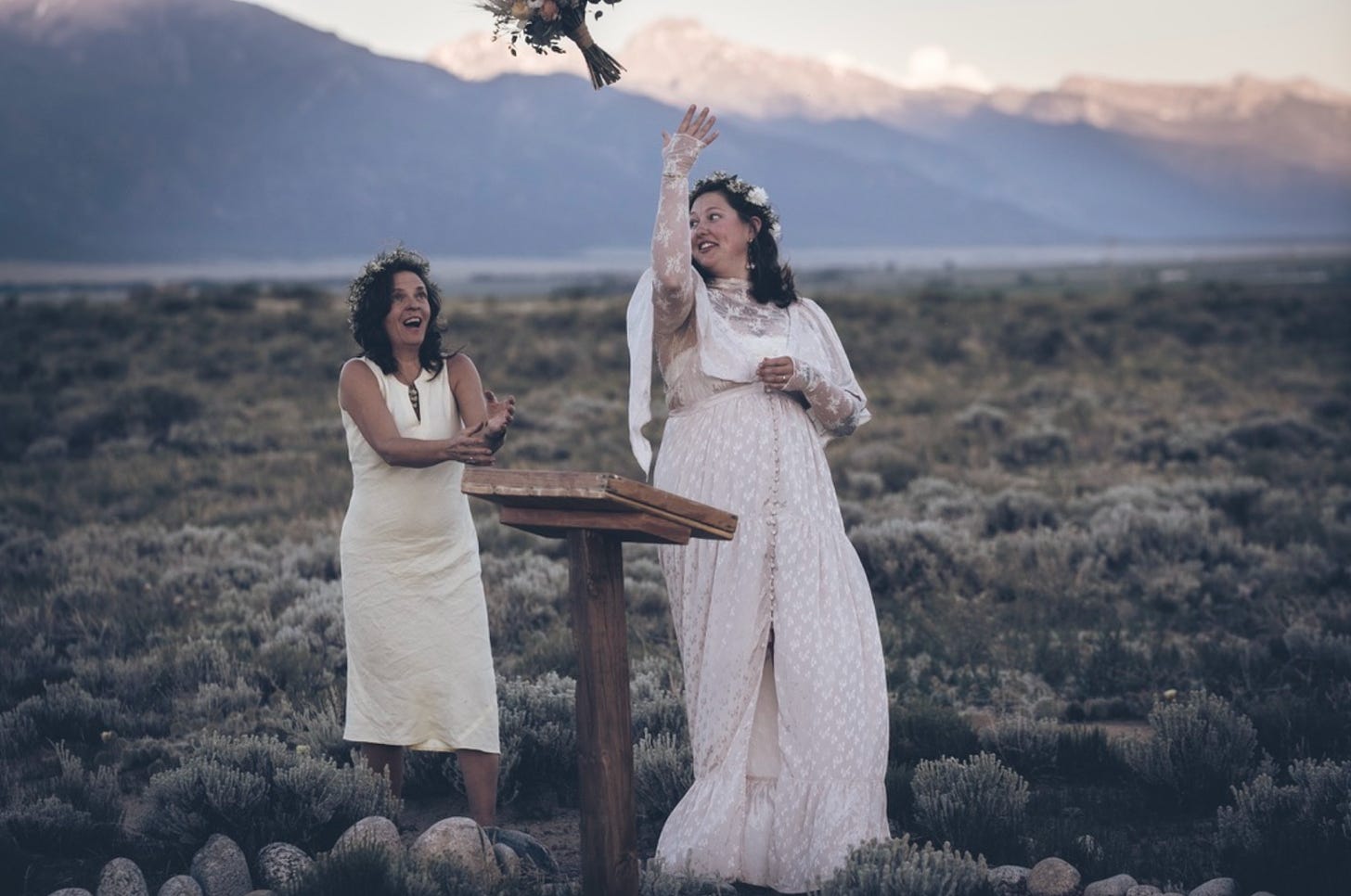
What a beautiful wedding 💒! I love that MLK quote as well (also used it in an essay exploring what love is!)
Just read this & was very touched by it. I’ve officiated many weddings in over 55 years since being ordained. Few if any have been as powerful as the one you shared with us here. Most weddings are kinda like herding kittens! Thanks for reminding us of what the ceremony can be when we get past the hitches & glitches.